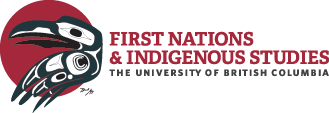Enfranchisement is a legal process for terminating a person’s Indian status and conferring full Canadian citizenship. Enfranchisement was a key feature of the Canadian federal government’s assimilation policies regarding Aboriginal peoples. Voluntary enfranchisement was introduced in the Gradual Civilization Act of 1857 and was based on the assumption that Aboriginal people would be willing to surrender their legal and ancestral identities for the “privilege” of gaining full Canadian citizenship and assimilating into Canadian society. Individuals or entire bands could enfranchise. In the case where a man with a family enfranchised, his wife and children would automatically be enfranchised. However, very few Aboriginal people or groups were willing to abandon their cultural and legal identities, as anticipated by the colonial authorities. Enfranchisement would become legally compulsory with the Indian Act of 1876, which stood until 1961. Over time, Aboriginal people have been enfranchised for serving in the Canadian armed forces, gaining a university education, for leaving reserves for long periods – for instance, for employment – and, for Aboriginal women, if they married non-Indian men or if their Indian husbands died or abandoned them.4

